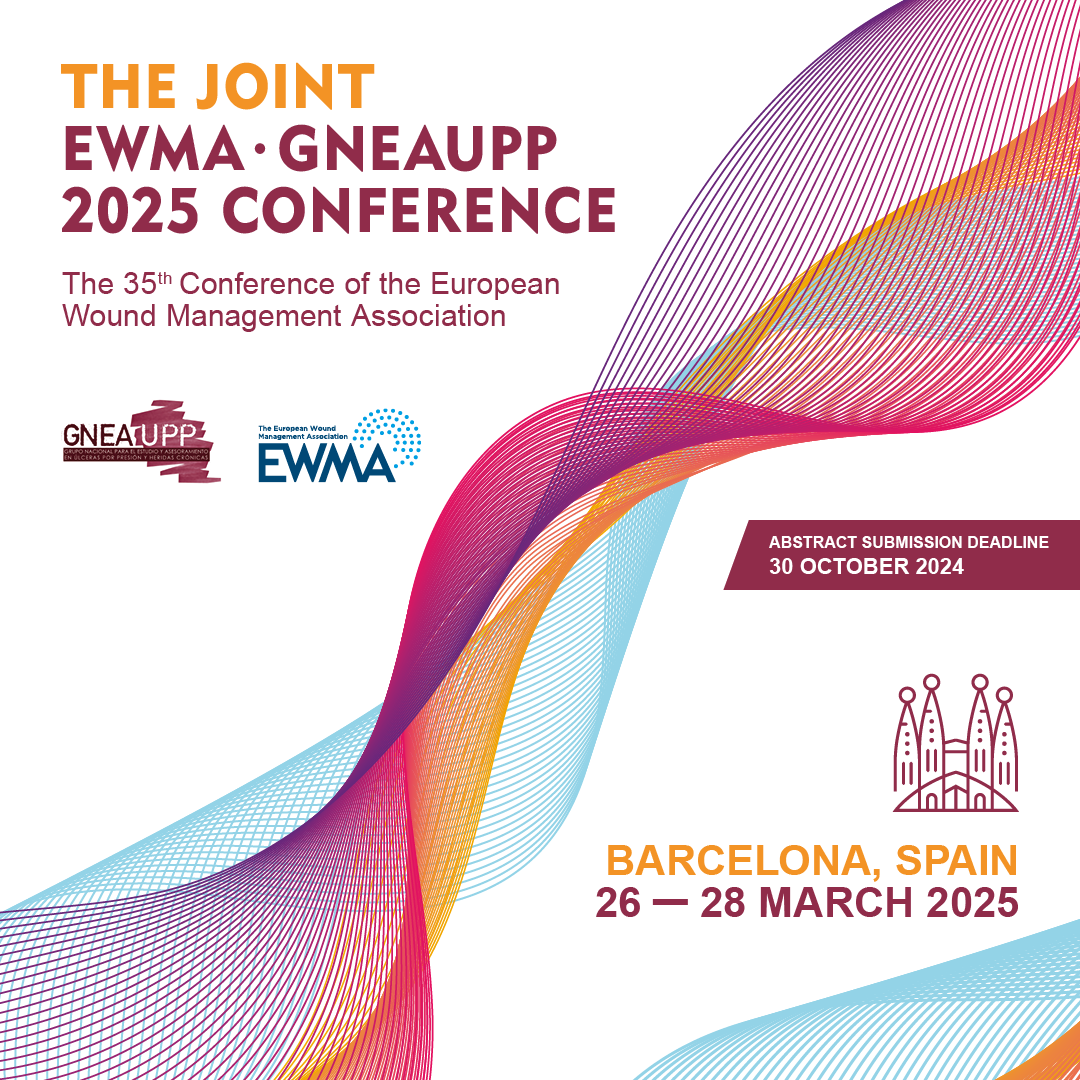JWM Publishing Ethics and Malpractice Statement
Click here to download a copy of the Publishing Ethics and Malpractice Statement.
Policies and processes
JWM, the official journal of the European Wound Management Association (EWMA) adheres to the recommendations of the International Committee of Medical Journal Editors (ICMJE Recommendations) and is listed with the ICMJE accordingly.
Editorial Board members may publish their research in the journal. JWM uses a double blind peer review process to ensure anonymity and remove any possibility of bias.
https://ewma.org/what-we-do/jowm/editorial-policy paragraph from Diamon Open Access here.
Cambridge Media publishes the Journal of Wound Management under contract on behalf of the EWMA. Copyright of the journal content is owned by EWMA. No editorial board members, reviewers or authors work for Cambridge Media.
Advertising
JWM displays advertising from sponsors of EWMA, which provides opportunities for companies to reach a clearly defined target audience. EWMA is committed to ensuring that commercial revenue has no influence or impact on editorial decisions.
The EWMA sponsorship team is never involved in any aspect of authorship, peer review and editing. Only advertising that is compatible with the image of and acceptable to EWMA is accepted.
Authorship
All authors must meet all four criteria for authorship as stated by the ICMJE definition of authorship.
- Substantial contributions to the conception or design of the work; or the acquisition, analysis or interpretation of data for the work; AND
- Drafting the work or revising it critically for important intellectual content; AND
- Final approval of the version to be published; AND
- Agreement to be accountable for all aspects of the work in ensuring that questions related to the accuracy or integrity of any part of the work are appropriately investigated and resolved.
All authors and contributors (i.e., individuals who contributed to the preparation of the manuscript but who do not meet the ICMJE criteria for authorship, including medical writers/editors) must specify their individual contributions at the end of the text in the Acknowledgements section. Individuals who did not contribute to the manuscript development but who deserve to be acknowledged for their contribution to the study (e.g., study investigators, persons who provided important technical expertise, or the participants as a group) should be mentioned in the Acknowledgements section.
Permissions
If the author(s) wishes to reproduce copyrighted work, it is the responsibility of the author(s) to obtain written permission from the copyright holder and to submit the original copy of that permission to the editor.
Requests from universities and credible insititutions for permission to deposit an open access, electronic copy of a journal article written or co-written by a faculty member into an appropriate institutional repository are usually met in the affirmative.
Acknowledgements
Acknowledgements should be as brief as possible. Contributions from anyone who does not meet the criteria for authorship should be listed. For individuals thanked in this section, or acknowledged elsewhere in the text, please provide names (initials and surname) and affiliations. Any editorial assistance should be acknowledged.
Funding
Sources of funding or acknowledgements of grant supports must be stated and the names of funding organisations should be written in full. If this affects the anonymity of authors, it should be disclosed in the cover letter to the editor, or the title page, and not appear in the main document. Where a funding source is declared, the role of the funding source (e.g., in-study design, data collection, analysis or interpretation of the data) must be described. If the funding source had no such involvement, this must be stated.
Where no specific funding was received, please insert the following statement: ‘This research received no specific grant from any funding agency in the public, commercial or not-for-profit sectors’.
Ethics
Investigations in human and animal subjects must conform to accepted ethical standards. Authors must certify in the text that the research protocol was approved by a suitably constituted ethics committee of the institution within which the work was carried out and that it conforms to the WMA Declaration of Helsinki or a similar such statement from the author's country, such as the Statement on Human Experimentation or the Statement on Animal Experimentation by the NHMRC in Australia. In addition, study participants must provide informed consent and appropriate written consents and permissions. Releases must be obtained where authors wish to include any case details, personal information, and/or images of patients or other individuals. Participant consent must be documented in the text.
Conflict of interest statement
The conflict of interest section in the manuscript submission process must be answered. It is the responsibility of all authors to disclose any financial and non-financial relationships that could be viewed as presenting a potential or actual conflict of interest. Conflicts of interest must be disclosed within the manuscript after the ethics statement. If this affects the anonymity of authors, it should be disclosed in the cover letter to the editor, or the title page, and not appear in the main document. If there are no conflicts of interest to report, this must be stated.
Peer review
JWM uses a double blind peer review process with manuscripts sent to at least two reviewers. Reviewers will score the manuscript and provide feedback to authors. Commonly, authors will be asked to revise their manuscripts at least once as a result of the peer review process.
Data sharing
The journal is distributed under the terms of the Creative Commons Attribution-NonCommercial 4.0 International (CC BY-NC 4.0) which permits others to copy and redistribute in any medium or format, and to adapt, remix, transform and build upon the material - provided that the articles are not used for commercial purposes.
JWM also encourages all authors to lodge their manuscripts, and all supporting data that relate to them, in the repositories of the institutions in which they work/study/research. Furthermore, the manuscripts and supporting data should be made available as soon as possible wherever that can be achieved .
Corrections, retractions and expressions of concern
The ICMJE recommendations for corrections and retractions and expressions of concern are followed by JWM.
A corrigendum or an erratum will be published in the very next edition after the Editor-in-Chief learns of a published error. If several and/or serious errors are found, a retraction will be considered and published.
If doubt is raised as to honesty or integrity of a published article, an investigation by two editorial board members will be instigated which could lead to an expression of concern being published.



